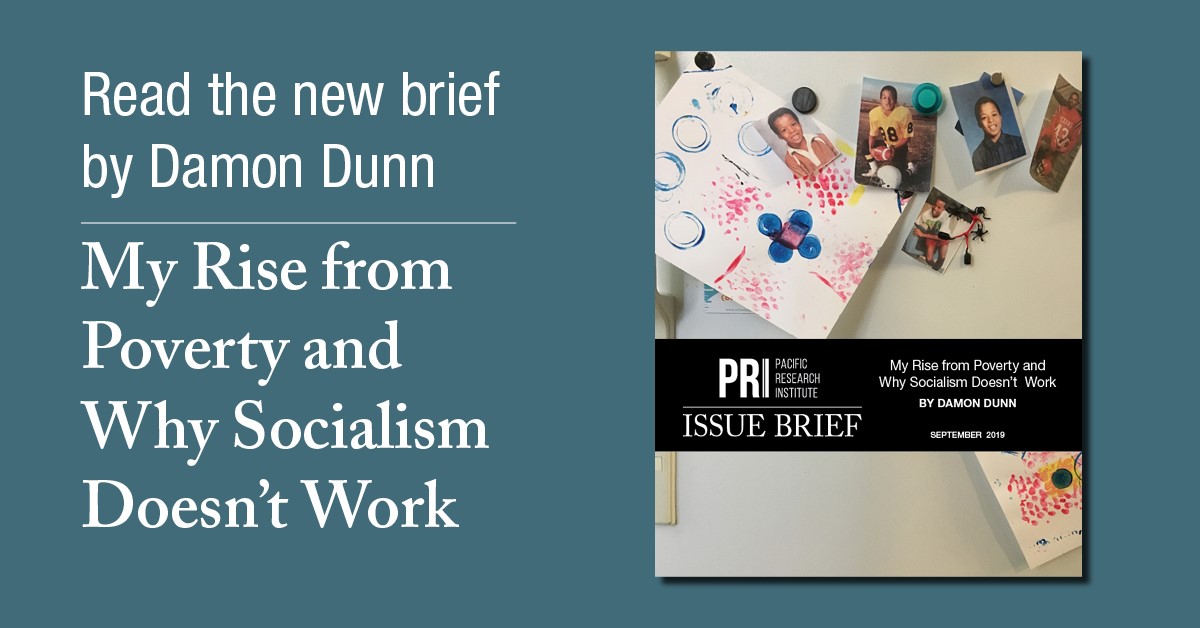A dominant narrative in recent American politics, on full display as the Democratic presidential candidates race left to do battle in their upcoming primaries, is that America is a land of inextricably fixed “haves” and “have nots.” The challenge of our generation is to tackle income inequality and social mobility, while successfully resisting calls for the centralization and expansion of government power to solve them.
Ignoring these issues is not an option. Neither is offering the same old conservative talking points, however well-founded or well-intentioned they may be. Instead, the primary motivation for freedom-loving folks must be to empower working people with the skills to become independent and upwardly mobile. At a time when the future of work is evolving, increasing the skills of all American workers, particularly those in communities falling further and further behind, must be centered around actual solutions to the problems we face, not tired, false promises by failed politicians to try and get through the next election.
Consider the incredible difference in income mobility for adolescents with different skill levels. High-skill students from the bottom 20% of income earning households have nearly the same likelihood of reaching the top 20% as similarly skilled students from middle income families. Put another way, there is essentially no gap between low and middle class households with respect to the income prospects for their children, so long as those children are given the opportunity to develop similar skills. This reality is perhaps unsurprising in a competitive market economy in which the average worker’s pay is still roughly proportionate to their skill and effort.
This will come as shock to those who have only been exposed to the defeatist “it takes money to make money” attitude.
Politicians have been obsessed with a tone-deaf macroeconomic debate over which economic theories should govern our lives. Should we support team Blue and their Keynesian paradigm as they attempt to manipulate GDP through discretionary tax and fiscal policy? Or do we support team Red, with their focus on rules-based monetary policy and altering tax and regulatory incentives to stoke investment and growth? While I strongly prefer the latter approach, neither of these platforms are targeted to help working people. To be candid, the average worker isn’t the main consideration for policymakers in either as both approaches have largely helped those with equity and capital while ignoring the individual struggling paycheck to paycheck.
Consider this past decade’s major debates over discretionary fiscal and monetary policy. The overall impact of the stimulus package is debatable, but the almost $1 trillion in debt it saddled every American with is not. Similarly, the Federal Reserve’s practice of quantitative easing increased inequality by intentionally driving down interest rates and making essentially free money available to those with plenty. Wall St. banks benefitted, especially the twenty-two primary dealers who can borrow directly from the Fed.
After being given essentially free money, the banks use it to make more money through trade, or by exploiting the spread between the price the government charges to borrow and the price it pays to those who own its debt.
How can any right thinking person defend a policy where taxpayers bail out banks who then borrow money at rates so low because they are guaranteed by our taxes, then watch those same banks buy government debt (incurred partially due to their own bad behavior) – and making money off the spread?
This is why the Fed’s balance sheet has soared to and remains historically high nearly a decade into the recovery. And these historically low interest rates have contributed to a global rush to raise capital at cheap rates, with Wall St. taking their cut on every transaction. The bull run spurred on by these policies has led to ever-higher equity raises and associated fees as the smart money looks to cash in, so long as they can. The government should have just skipped the middle man and paid bonuses directly to Wall Street’s biggest investment bankers, private equity firms, and investors.
The reason it is so important to understand seemingly arcane details about our nation’s recent monetary and fiscal policies is that they are directly at the heart of why so many Americans have become so disillusioned with politics.
A large majority of recent government economic policies work, to the extent that they work at all, in ways that largely bypass the 96% of Americans who receive the majority of their income through a paycheck. The “skills-based” approach to economic policy I endorse suggests that every person can learn a skill or develop a talent to engage in meaningful and valuable work or become an entrepreneur themselves. Every able-bodied American can and should be able to make enough money to take care of themselves and their families while contributing to the greatness and goodness of America. Step one is to stop the government from tilting the scales so far against them.
Damon Dunn is a fellow in Business and Economics at the Pacific Research Institute.

